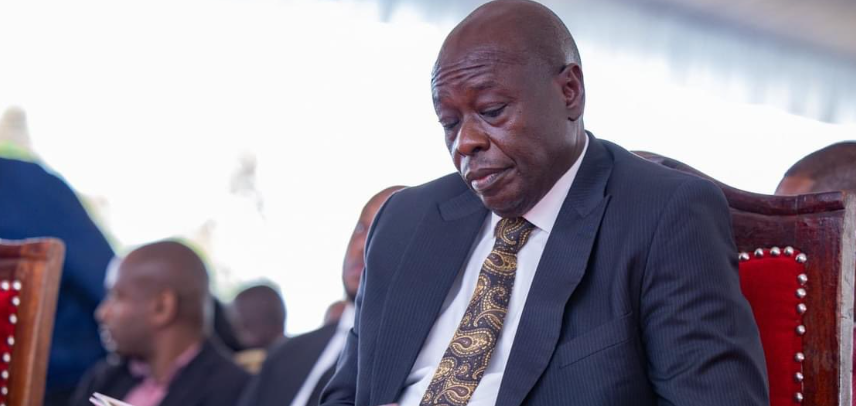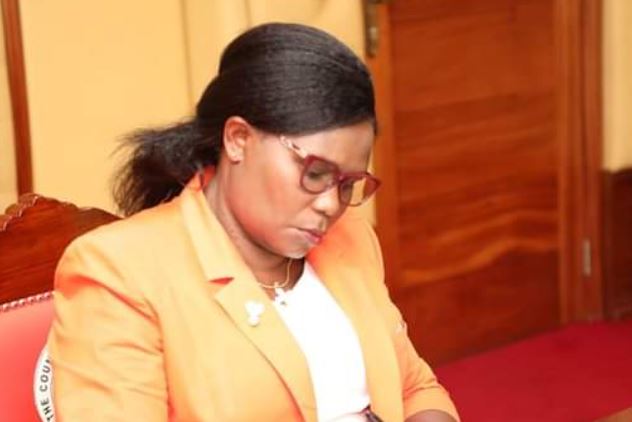Court declines to stop tabling of Gachagua’s impeachment motion in parliament

The High Court has declined to issue interim orders to stop the National Assembly from processing the motion to impeach Deputy President Rigathi Gachagua.
In an application filed by former senator Cleophas Malalah through lawyer Peter Njagi, he has sought interim orders against the National Assembly, the Senate and their speakers restraining them, jointly and severally, from tabling, debating or acting upon any motion for the removal or levying of sanctions against the Deputy President Rigathi Gachagua.
The basis advanced by the petitioner is that the National Assembly and the Senate respectively, are allegedly unconstitutional in terms of their composition due to an alleged failure by them to meet the constitutional requirements regarding the ‘no more than two-thirds gender rule’ set out under Article 27(8) and Article 81(b) of the Constitution.
“The National Assembly and the Senate have failed to meet the constitutional threshold of the two-thirds gender principle as required by the Constitution. Parliament’s failure to comply with this requirement renders its composition unconstitutional, and therefore, any proceedings conducted, including impeachment, would be invalid and void ab initio,” Malalah states in court papers.
He adds that the failure of Parliament to enact and implement the two-thirds gender rule violates the constitutional rights of Kenyan women to equality and freedom from discrimination under Article 27 of the Constitution.
The High Court judge has certified the case as urgent but has not given any orders.
The judge has directed the parties to serve and file their responses pending a mention on October 7, 2024, for further directions.
“The matter shall be mentioned on October 7 for further directions and/or issuance of orders,” the order reads.
In the petition, Malalah says an unconstitutionally constituted body cannot lawfully discharge its constitutional duties, including processing and hearing impeachment motions.
He states any decisions made by the current National Assembly and Senate, particularly those related to impeachment, are therefore inherently flawed and invalid.
He adds that there have been numerous rulings and judgments, including from the highest court, affirming that the gender requirement is mandatory in the law, not optional.
“Having an impeachment heard by an illegally and irregularly constituted Parliament violates the rights of the Deputy President (Gachagua) and the Kenyan public at large to fair administrative action, as such proceedings would be incurably defective, unlawful and unprocedural,” he claims in court documents.
He says the current composition of Parliament disqualifies it from entertaining any motion seeking to impeach the Gachagua.
Malalah has called upon the court to scrutinize the procedure that would arise from an impeachment conducted by an unconstitutionally constituted Parliament.
He argues that the court ought to issue conservatory orders to preserve the integrity of the Constitution and protect constitutionally established offices from unlawful actions.
Gachagua to suffer harm
Subsequently, Malalah says if the impeachment is allowed to proceed in the current circumstances, Gachagua would suffer irreparable harm, including permanent disqualification from running for public office ever again in the Republic of Kenya.
“Failure to comply with the two-thirds gender rule means that Parliament lacks the requisite quorum to lawfully hear the impeachment proceedings. Any decisions made by such a Parliament would be null and void, leading to uncertainty and instability in the Republic of Kenya,” court documents read.
He says there have been credible reports in both print and online media regarding the collection of signatures by Members of the National Assembly to initiate impeachment proceedings against Gachagua, as such, the threat of impeachment is real, and the Court can take judicial notice of these facts under Section 60 of the Evidence Act.












